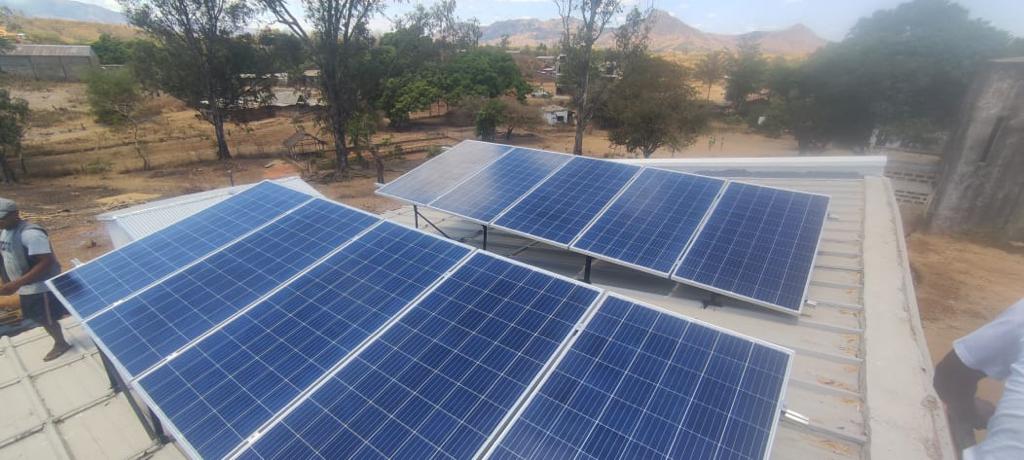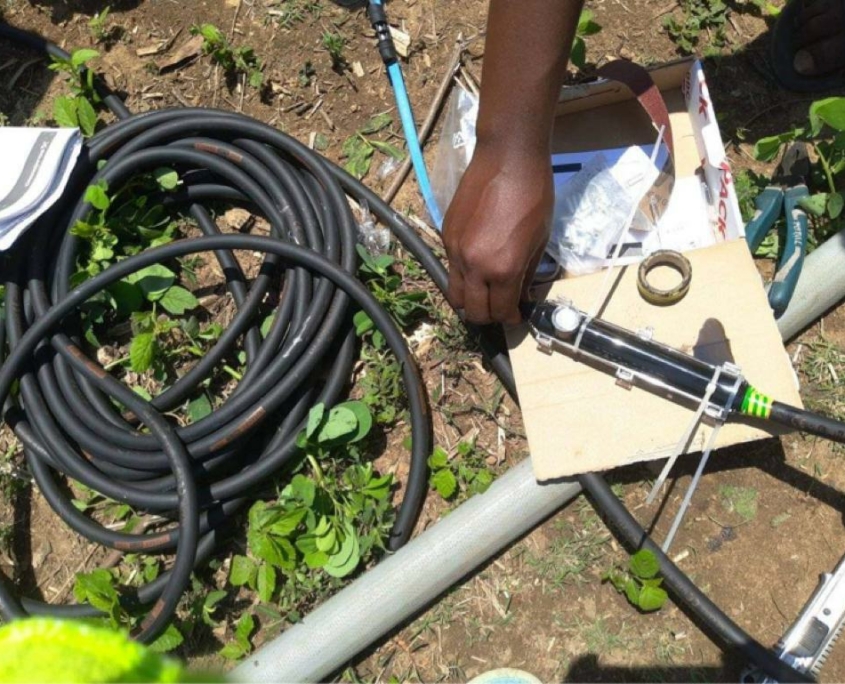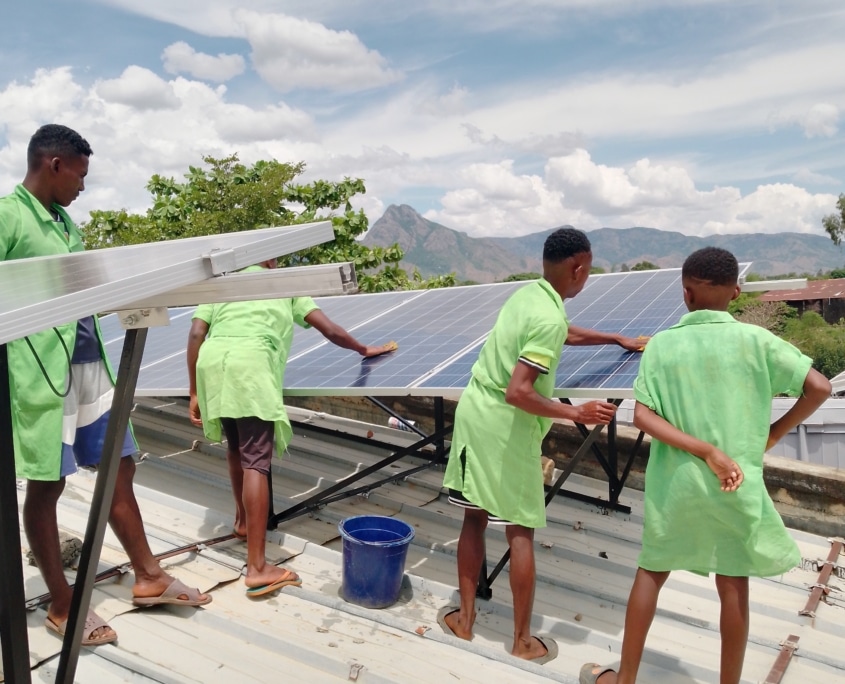A renewed partnership
To train the next generation of family farmers and professional agricultural organizations in Madagascar, the agri-agency Fert and Cneap have been supporting a training and integration program for young people in agriculture for over 20 years. 5 agricultural colleges have been created and are federated within the Fekama federation, a member of the Fifata group, and studies for the construction of a 6th college have been launched.
In 2018-2019, Fert, Fifata and Fekama have, with the support of the Synergie Renouvelable endowment fund, set up a solar electrification and pumping system for the brand-new Manganoro college in the Alaotra Mangoro region.
At the beginning of 2023, of Fekama’s 5 agricultural colleges, only the Befandriana agricultural college in the Sofia region, set up in 2003, was still running on electricity supplied by the national company Jirama. As well as being expensive and a fossil fuel source, the frequent power cuts made it difficult to train young people and run the college on a daily basis. The use of high-capacity solar energy, for both electrification and water pumping, was a desirable alternative to ensure training in good conditions, promote student well-being and improve living conditions for the teaching staff.
This project is part of a broader support program for Fekama, initiated in 2017, co-financed by the French Development Agency (AFD) and currently in its third phase.
Professional, comprehensive expertise
Synergie Renouvelable provided both financial and technical support, drawing on the expertise of the ENR companies invested in the Endowment Fund.
The work was entrusted to Energie Technologie, a company known to Fert and Fekama and which has all the necessary expertise, from the purchase and installation of equipment to team training. Energie Technologie carried out a preliminary study which was reviewed by a Synergie Renouvelable expert. Work, installation and maintenance were also monitored.
A relevant and efficient installation
The Befandriana agricultural college suffered from frequent and unpredictable power cuts and load shedding, especially during the rainy season. For water management, the college used a pumping system installed in 2007, and the water supply network was in an advanced state of disrepair. The water flow was insufficient for the college’s educational farm and for domestic use by students and staff.
On completion of the project, the facility will meet the daily water and electricity needs of students and teaching staff (boarding school, extracurricular activities, employees’ family life, etc.). It contributes to training in the sustainable management of natural resources and enables the development of digital technology. Indeed, the increased energy capacity makes it possible to acquire new computers to introduce students to computing and to manage the school’s administration and accounts.
Thanks to constant access to quality water, the varieties of plants on the educational farm for training and the school canteen have been increased and diversified. The watering cycle of the plants will be respected and a better yield is expected. These facilities have also helped to increase the number of pigs on the farm, offering students more practical experience and increasing financial resources through the sale of animals. Last but not least, the availability of water enables regular cleaning of the livestock buildings and watering of the animals.
Each new class of students will be trained to maintain the facilities and use water and electricity sparingly; their awareness of these issues will then enable them to act as “ambassadors” in their families and communities.





